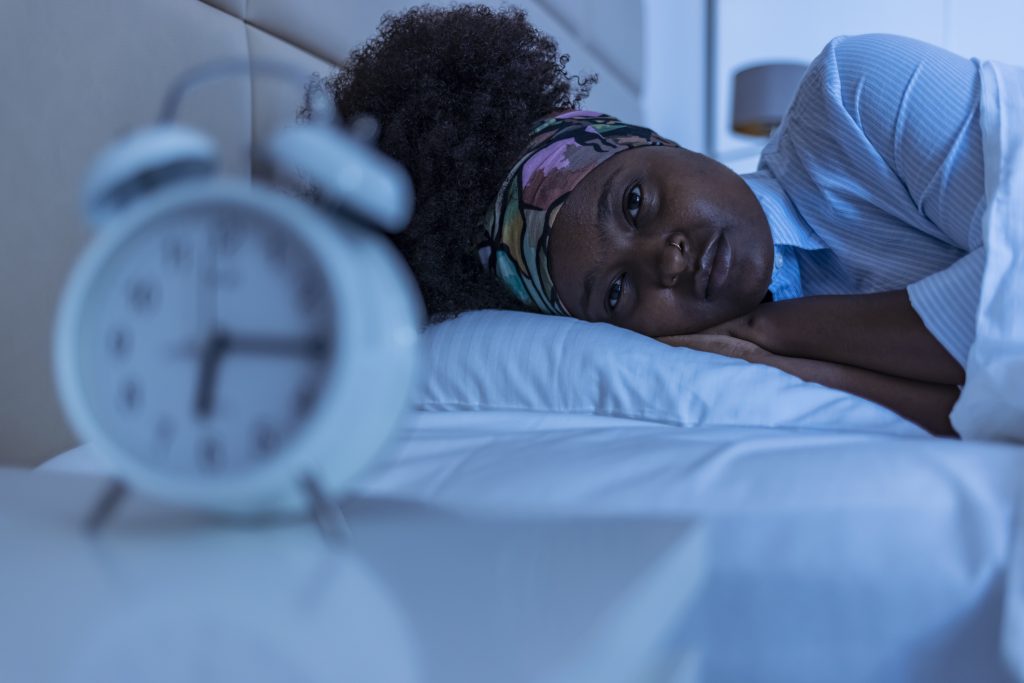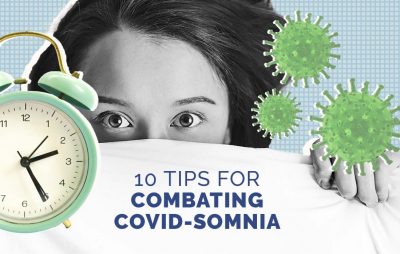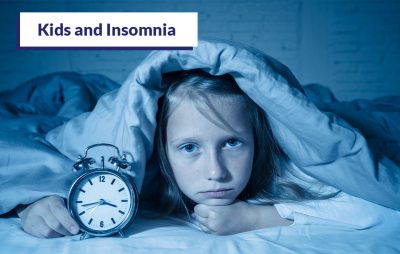
It’s not unheard of to have sleep problems—especially as a result of the stress of the pandemic. But new studies show that the virus itself may actually disrupt circadian rhythms, creating insomnia.
Cinthya Pena Orbea, MD a sleep medicine specialist at the Cleveland Clinic, recently told Health Essentials that lots of new research is looking at the connection between the Covid virus and insomnia.
“Sleep disorders are one of the most common symptoms for patients who’ve had COVID-19,” Pena Orbea, told Health Essencitals. “They report insomnia, fatigue, brain fog and sometimes we even see circadian rhythm disorders.”
Several studies have tied long-COVID to insomnia, meaning that people who recover from the virus may battle insomnia long after they have cleared it.
“Clinicians and researchers are exploring several possibilities that include having a persistent inflammatory state or an inadequate antibody response, and there’s another thought that there is ongoing viral activity that’s causing organ damage,” Pena Orbea added.
Understanding the COVID-19 and insomnia connection gets tougher because people are tired and fatigued when they have COVID-19, or may not sleep well. Having insomnia may not seem like it’s biologically connected, but it may be a result of actually having the virus, Pena Orbea explained.
A 2021 study said people with long-COVID symptoms had higher rates of insomnia than those who never had the virus. Survivors largely experienced sleep difficulty, along with fatigue, muscle weakness, anxiety, and depression, another report published the same year found.
“At least a third to half of our patients say [their sleep] is worse than it was before they got COVID-19,” Megan Rees, head of the Royal Melbourne Hospital’s Sleep and Respiratory unit, told ABC News in Australia. She said people can have sleep problems during acute infection, as well as in the weeks and months after.
On the Horizon
A study in Lancet Psychiatry says insomnia may be one of the most common neurological and psychiatric results from having the virus.
There’s even an International COVID-19 Sleep Study (ICOSS), which is conducting additional research about the pandemic and sleep issues.
Murky Mechanism
Oz Garcia, a New York City nutritionist and author of After Covid: Optimize Your Health in a Changing World, told Sleepopolis that the virus can impact the brain and neurological systems. In addition to disrupted sleep, the Covid-19 can lead to headaches, pain, discomfort, or neuropathy.
“Since Covid enters the central nervous system, it can also penetrate the blood brain barrier which causes a disruption of the delicate processes within our nervous system,” Garcia said. “COVID can also affect the circadian systems within our brain. COVID can negatively affect melatonin production and any related neurotransmitter that will help put you to sleep.”
COVID-19 is like a “landmine that can lay in waiting until it gets triggered down the road,” he said. “Since we already know that our body and brain may not completely clear the virus or viral particles, we don’t know what is it that could set us off. Insomnia could be one of these issues that gets triggered.”
Tips on How to Combat Insomnia
Mindfulness practices such as neurofeedback, meditation, acupuncture, and craniosacral therapy can help combat insomnia. There are also a broad variety of nutraceuticals that may improve sleep and the damage done to our brains from the virus, Garcia said.
- Lifestyle changes. Exercising regularly, eating well, avoiding alcohol and stimulants, eliminating nicotine, and creating a relaxing bedtime routine can all help promote high-quality sleep
- Sunlight exposure. Getting plenty of exposure to daylight, especially in the morning, helps maintain the body’s natural circadian rhythms, which are responsible for maintaining a consistent sleep-wake schedule
- Psychotherapy can help insomnia sufferers address anxiety and other thought patterns that might make sleep more challenging. Awareness of negative thoughts and habits can short-circuit sleep difficulties and make relaxing easier
- Medications and supplements. Your doctor may recommend a short-term course of prescription sleeping pills or other sleep aids, including melatonin and antihistamines



